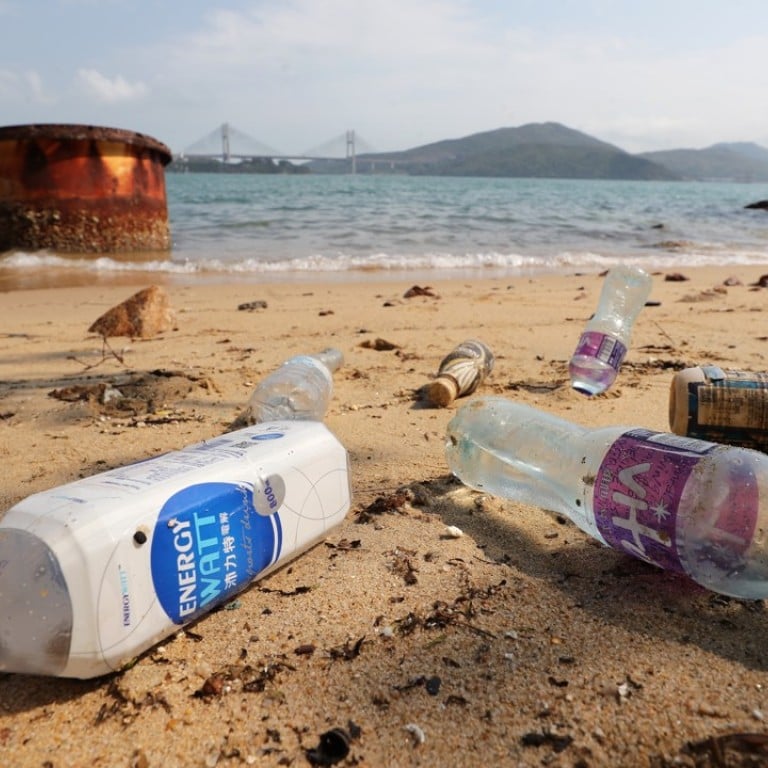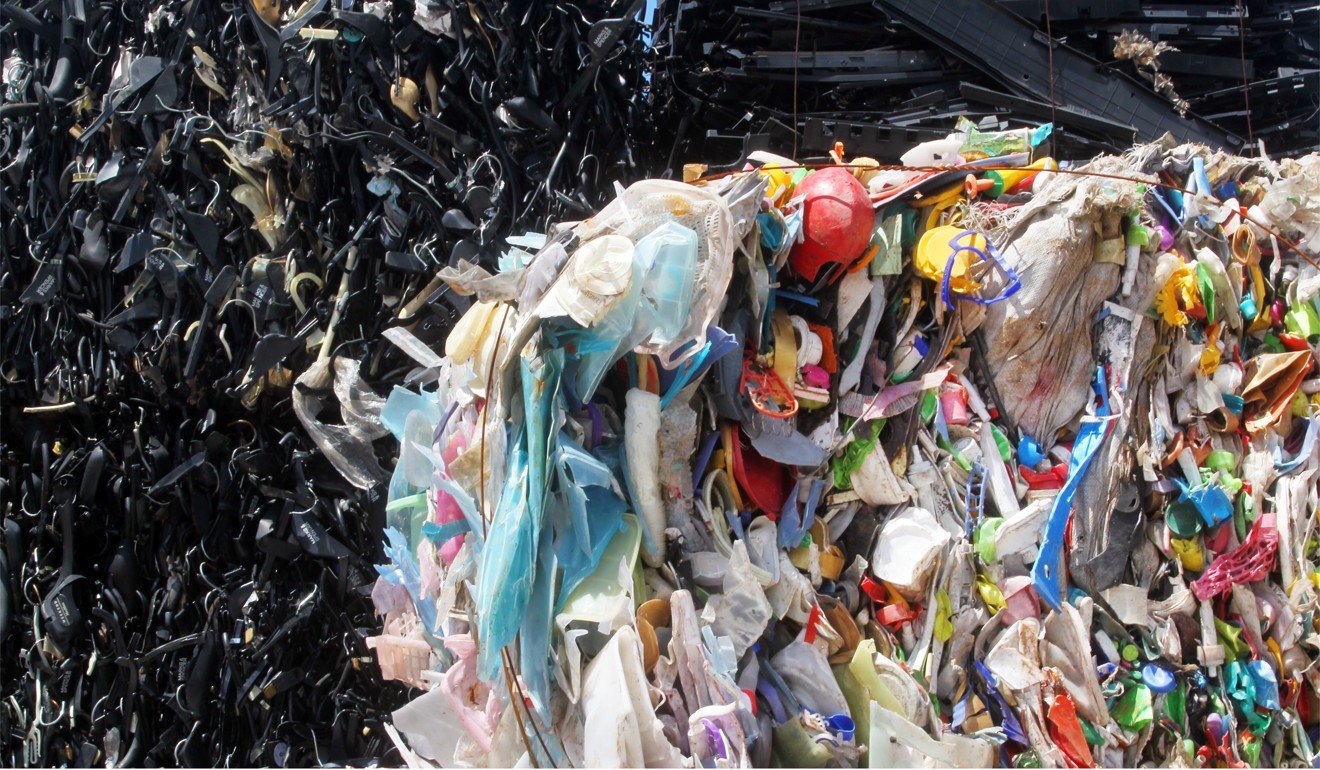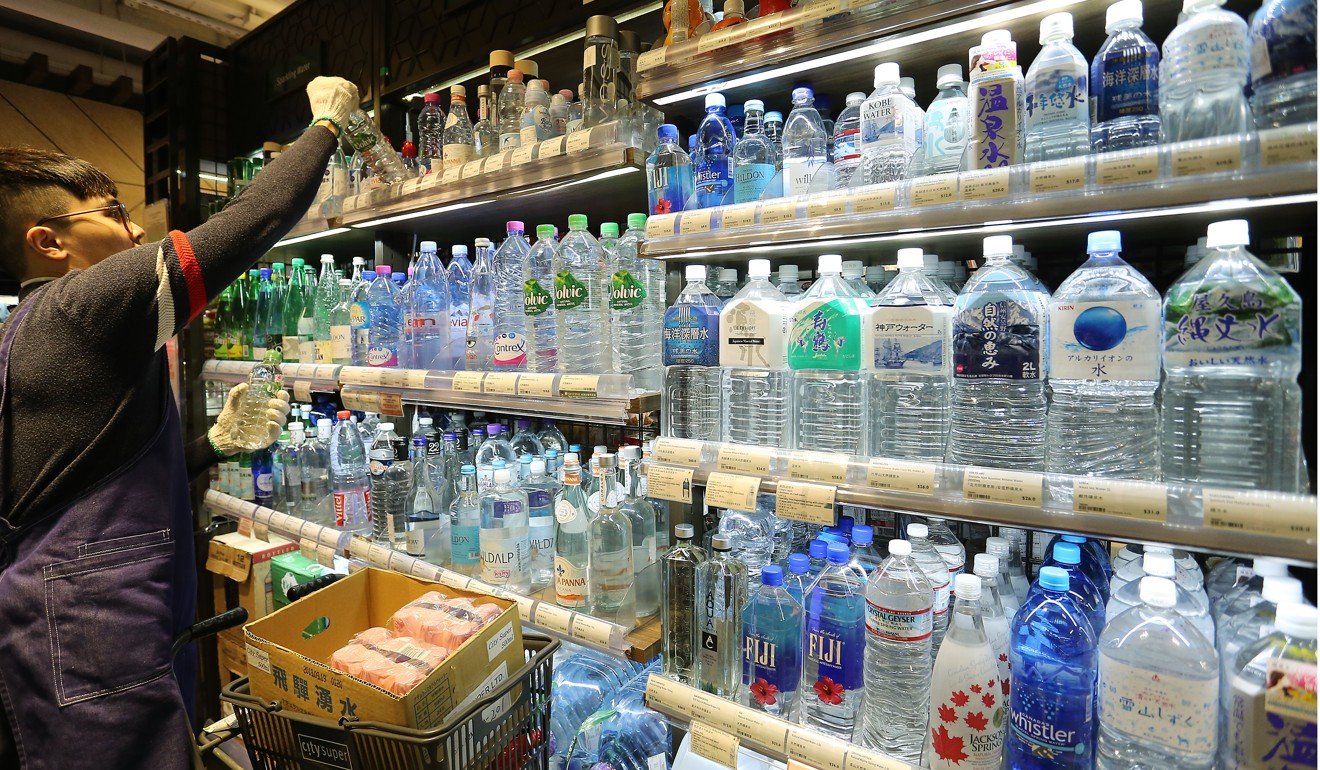
‘Reverse vending machines’ could dispense cash for used plastic bottles in Hong Kong to boost dismal recycling rate
Environment minister says idea one of a number being mulled to tackle the millions of drinks containers that go each day into overflowing landfills
“Reverse vending machines” that dispense cash rebates in return for used plastic bottles could soon hit the streets of Hong Kong, as officials seek ways to boost the city’s dismal recycling rate.
The proposal was put forward in a government study along with a “producer responsibility scheme”, which would make waste producers bear the cost of collection, recycling, treatment and disposal for their products.
Preliminary results from the study have been laid out in a consultation report commissioned by the Environment Bureau in which researchers advised the government to prioritise an incentive scheme for plastic bottles.
Environment minister Wong Kam-sing said offering consumers financial incentives to return bottles for recycling would help boost plastic waste recovery rates.

“In places overseas that have such systems, plastic bottle recycling rates have been exceptionally high – 50 per cent in some cases or even as high as 80 or 90 per cent in others,” Wong said on Sunday.
“It is an effective method but we will have to consider Hong Kong’s own constraints when it comes to implementation.”
Plastic bottle deposit scheme considered for Hong Kong to boost recycling incentives
“Smart reverse vending machines” could be introduced at “convenient locations” around town to facilitate and enhance recycling efficiency, he said.
Consumers would pay a bottle deposit when buying a drink and the machines would accept the empties for recycling and return that deposit.

New technologies enable machines to compress bottles and reject those still with liquid in them, as well as scan barcodes to ensure a bottle was sold locally.
Wong said the consultant carrying out the government study would “engage relevant trade associations and other stakeholders to seek their views before submitting a final proposal to the Environmental Protection Department for consideration”.
Private sector has failed Hong Kong on plastic bottle recycling, green group study finds
Millions of plastic drinks bottles go each day into Hong Kong’s overflowing landfills.
In 2016, the latest year for which statistics are available, 10,345 tonnes of municipal waste was sent to landfills every day, 1.8 per cent more than the year before. Of this daily mountain, one-fifth, or 2,132 tonnes, was plastic, including 154 tonnes of disposable plastic cutlery and 227 tonnes of plastic bottles. The recovery rate for plastics was just 14 per cent.

Wong said the government was “actively exploring” other measures to reduce the use of disposable plastic items and promote recycling, including extending to incorporate other plastics a pilot scheme for the centralised collection of bottles.
Officials would also step up promotional efforts to persuade consumers to reduce the use of items such as disposable straws and cutlery, and would even consider whether controls were necessary in the future, he added.
Install water dispensers across Hong Kong to cut its reliance on plastic bottles
Some progress has been made. Last week, property developer Sino Group announced a ban on all plastic straws at its restaurants in Hong Kong.
Environmental group Green Earth welcomed the new measures proposed and said they sent the right message to manufacturers of single-use plastics, as well as the public.
“The recovery rate for waste plastics was only 14 per cent [in 2016], reflecting the ineffectiveness of waste reduction and recycling,” the group said in a statement.
It urged the government to place reverse vending machines at strategic locations, such as MTR exits, shopping malls, government venues and housing estates.

